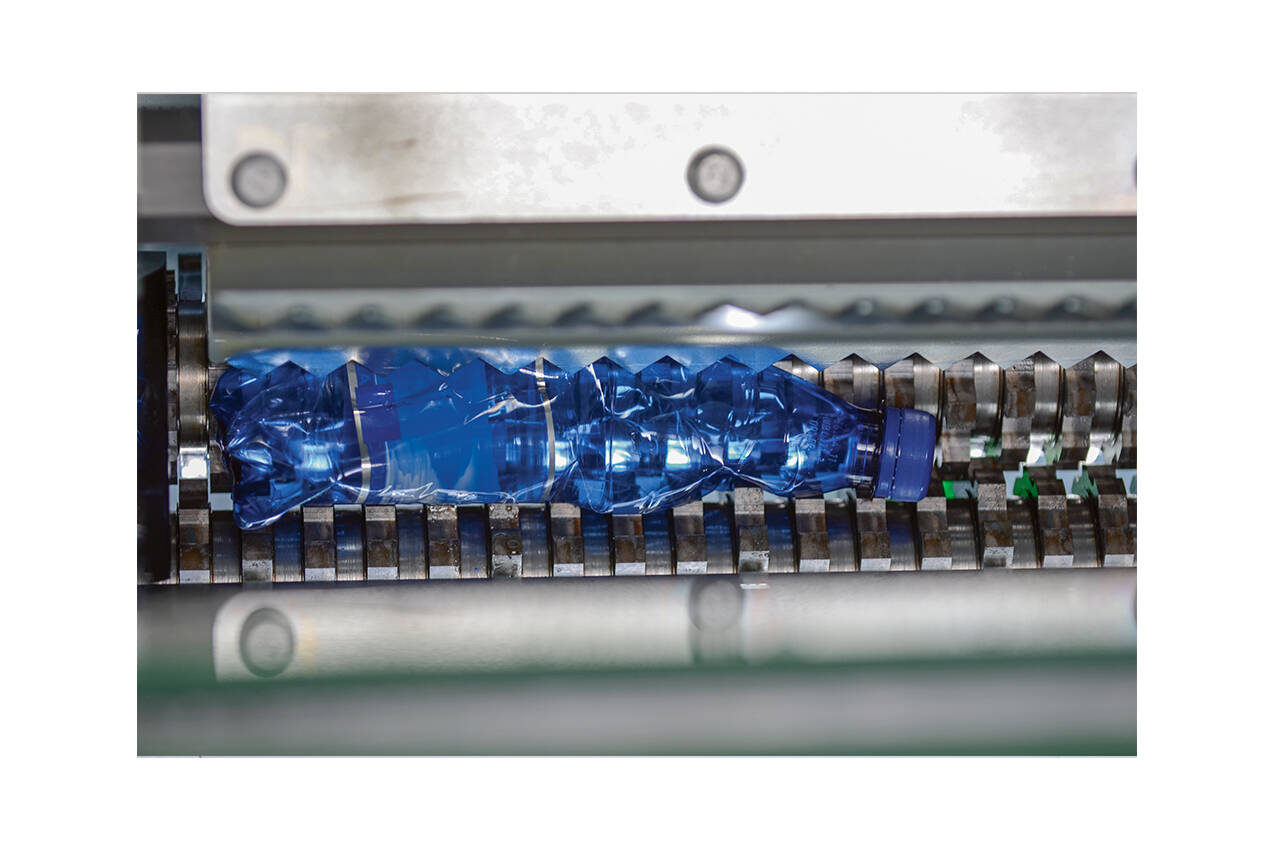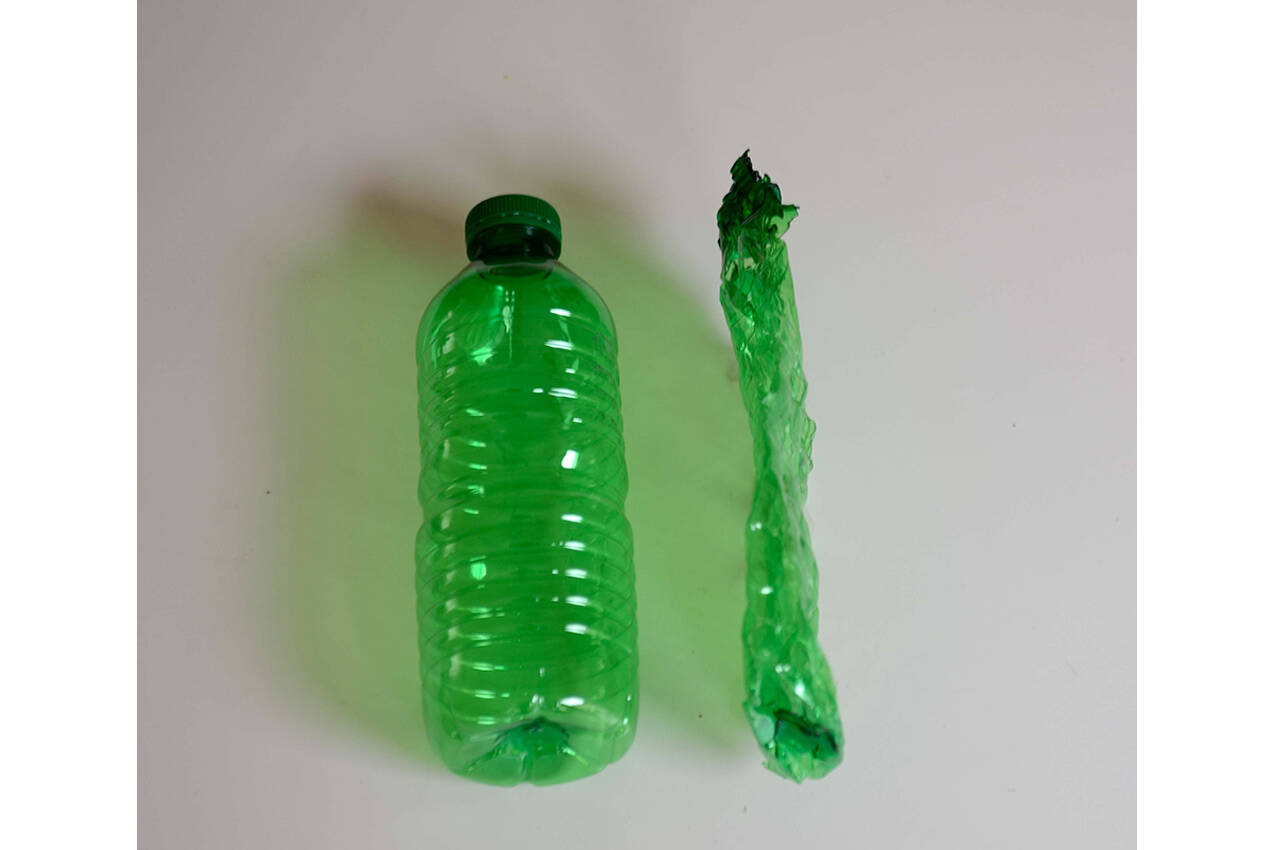500 billion PET bottles are produced each year around the world. The production of 1 kg of PET bottles requires 1.9 kg of crude oil. In the light of this figure, the recycling of used PET bottles is becoming more relevant than ever. More than 90% of all PET bottles produced are single-use bottles. Because PET is fully recyclable, PET is a key element in the reusable material cycle for the production, for instance, of fibres for textile production, film, packaging tapes and even furniture. HSM rose to this challenge some years ago and has been using its expertise in the environmental industry to develop customised solutions for the effective recycling of PET bottles.
The HSM PET Crusher is an effective system for compacting PET bottles and cans to around 1/3 or even 1/4 of their original volume. The cutting units can also be used in combination with deposit return machines.
The sophisticated technology of the HSM PET Crusher
The crusher rollers are made from a specially hardened and polished steel. The equipment as a whole is durable, robust and built to last. The machine is controlled by an easy-to-operate membrane keyboard. A metering shaft with several blades ensures that the PET bottles or cans are reliably collected from the rollers. A scraper system ensures that the compressed plastic bottles and cans are removed from the rollers. The operational width is 490 mm and the loading height is approximately 1200 mm. Up to 70 litre bottles can be crushed in each stage; up to 2400 litre bottles can be processed in one hour. The cutting unit can also be used in conjunction with deposit return machines.
Other benefits of the HSM PET Crusher:
- High throughput
- Compact dimensions
- Energy-efficient as a result of automatic switch-off
- Continuous operation option available
Cost-effective for recycling of PET bottles
Drinks bottles made from polyethylene terephthalate, abbreviated to PET, are an indispensable part of today’s retail industry. This requires new disposal solutions, as society and governments are also seeking full raw material recycling of drinks bottles.



